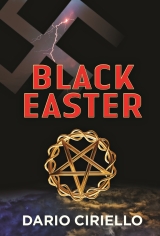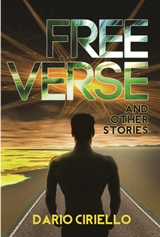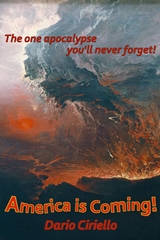As some of you may know, I’ve just revised and re-released my 2017 book on writing craft, formerly titled Drown the Cat, as The Fiction Writing Handbook: The Professional Author’s Guide to Writing Beyond the Rules.
The Fiction Writing Handbook takes a hard new look at common writing myths and diktats and challenges conventional wisdom with the goal of helping writers to develop an individual voice and understand the reasons underlying the so-called rules of writing.
Here’s an excerpt on the topic of conflict. If you find this interesting, you can find the book on Amazon.
External and Internal Conflict
It’s a truth of the human condition that our interest is more easily sparked and our attention held by threats than by good news. We watch the nightly news and read newspapers to keep informed of threats and crises, not to feel warm fuzzies at the good fortune of others—unless they’ve been snatched, against all odds, from the jaws of death. This focus on negatives and threats is a hardwired survival mechanism from eons past when we weren’t at the top of the food chain and lived in constant fear of attack from predators and other small bands of early humans. So it’s no surprise that conflict—a condition born of clashing goals between ourselves and others, ourselves and nature, or simply our conflicting inner drives—is a core component of story.
Conflict in story comes from the presence of obstacles between a character and their goal. The conflict can be external or internal. When a rival tries to steal the heart of the woman the hero loves, you have conflict; but the conflict could equally well stem from the fact that geography and life circumstances (distance, children, jobs they can’t quit, etc.) keep the couple apart. Going more internal, if the hero’s drinking stops him from gaining the affection of the woman he loves, the potential result is the same: hero loses girl. Going deeper still, if the hero’s insecurity and lack of self-worth undermines him in his interactions with the object of his affections, he still won’t get the girl.
There’s a widespread assumption that, since conflict of some sort is an essential component in fiction if we want to have an audience, more must be better. This, like so much else, is a fallacy based entirely on the commercial drivers of the narrative and dramatic arts in the modern world. It’s nonsense.
The word conflict means serious disagreement or struggle, and we’re continually told that for a story to keep the reader hooked you need conflict in every scene, and even every page. This is idiocy. What keeps the reader hooked are questions, often of the will they/won’t they kind. Some of these may contain oppositions—a character is hungry but everything conspires to prevent them from eating. Are these conflict? You decide.
Then there’s the problem of forced conflict and melodrama.
Take the television series Downton Abbey, most of which I enjoy enormously. Despite some superb writing and often brilliant character work (Lady Mary, Mr. Barrow, et al) this hugely successful series frequently crosses the boundary into soap opera and melodrama. This is of course a subjective judgment; but I contend that though the series is compelling viewing and full of conflict, it often achieves that at the cost of being manipulative. Take for example Mrs. O’Brien, a character entirely lacking in roundness and whose sole purpose is to stir the pot; or consider the repeated and ultimately tedious crises of Mr. Bates’s plot arc, and you may see what I mean. The longer the series ran, the further it strayed over the line between natural and forced conflict.
Good conflict needs to be unforced, naturally occurring rather than engineered. The quality and dimension of conflict in a given story is important—a hero risking death will command our attention more than a hero risking a few bruises; the protagonist facing ruin engages us more than one facing a parking ticket. But when, as in so many contemporary crime novels and virtually 100 percent of TV and film detective stories, every protagonist comes literally crushed under the weight of internal and external baggage, the effect is inevitably formulaic.
I’m not saying that audiences don’t get hooked by this: the runaway success of novels like The Girl with the Dragon Tattoo and TV series like Breaking Bad speaks for itself. What I am saying is that manipulating your audience doesn’t equate to good fiction or storytelling. But such is the grip of suits and money on the publishing business that things have become confused.
Each era has its fashions, but the drive in publishing to expand the bottom line has led to a pedal-to-the-metal, all-conflict, all-the-time formula being applied to so much drama that it all starts to look the same. The protagonist was abused as a child, has a deeply dysfunctional family background, custody issues with their ex, struggles with drink, drugs, or both, has endless interpersonal and discipline issues at work, possibly a life-threatening condition…and that’s just their backstory.
Sound familiar?
You don’t have to cynically manipulate your reader with every tool imaginable to keep them interested. To my mind, the real craftsman strives for economy and originality instead of milking the reader dry by using the exact same template every other novelist and screenwriter out there employs. Yes, some people in real life do carry a similar and crushing baggage set, but I submit that to just throw in the kitchen sink because it sometimes works erodes our art and ultimately damages our soul. I’m tempted to use words like “cheap” and “lazy” in regard to this way of overloading a hero with conflict except for the fact that too many writers I respect do this very thing: but I stand by my opinion that the protagonist struggling to even breathe under the load of their internal baggage is a fad born of Hollywood and the ever-intensifying pressure of the bottom line rather than any requirements of story or craft. Was Homer’s Ulysses an alcoholic? Was Shakespeare’s King Lear abused as a child? While both these things are possible, the power of both these dramatic figures certainly isn’t undermined by our not being told.
We are all who we are because of our past, and it’s true that our past, and especially deep-rooted childhood experiences and trauma, can predispose us to certain behaviors; but this doesn’t mean we have to take it to excess.
Let’s take as an example John Le Carré’s character George Smiley, one-time head of the British Secret Service. A somewhat introverted, cerebral figure, Smiley is endlessly cuckolded by his wife Anne, who has taken for a lover one of Smiley’s colleagues, the suave, worldly Bill Haydon. But that’s it. Along with a sense of his growing age and concomitant vague melancholy, that’s the sum total of Smiley’s personal baggage and, my God! how much more believable and unique a character Smiley is for that. Nor do audiences balk at Smiley’s lack of inner demons: the Smiley novels have sold in the millions, been translated into thirty-six languages, and adapted for radio, television, and film.
To show that it’s entirely possible to have very successful narrative drama without resorting to crushing internal conflict, and that a perfectly normal, well-adjusted protagonist can still be at the core of a compelling and hugely successful story, consider Frodo in Tolkien’s Lord of the Rings. At the onset of the story, Frodo is a normal, happy, and well-to-do hobbit. Once the truth about the Ring is revealed, it’s all downhill, but Frodo doesn’t start off conflicted or struggling against inner demons.
Then there’s Detective Chief Inspector Barnaby in the hugely successful British TV series, Midsomer Murders: Barnaby has a good family life, lives in a lovely village, and is in fine health and good spirits most of the time. Or Elizabeth Bennett in Jane Austen’s Pride and Prejudice: other than the ordinary, everyday concerns of living with a neurotic mother, a few silly sisters, and a bookish, eccentric father, Elizabeth is a happy, carefree, normal young woman.
Do we care any less for any of these because they’re not struggling to even stand under the burden of emotional baggage? Of course not.
To conclude, the writer doesn’t have to follow the herd and pander to current cults in storytelling. One can craft powerful, resonant fiction without overloading every available slot in a character’s makeup. Like everything about your story, your characters’ backstory is a choice—your choice. Not being bound by ludicrous assumptions and conventions frees us up to tell our own story without imposing someone else’s tired template on our characters.
What do you think? Do you find contemporary genre fiction and television predictable, formulaic, and ultimately tedious in its overuse of these devices?








